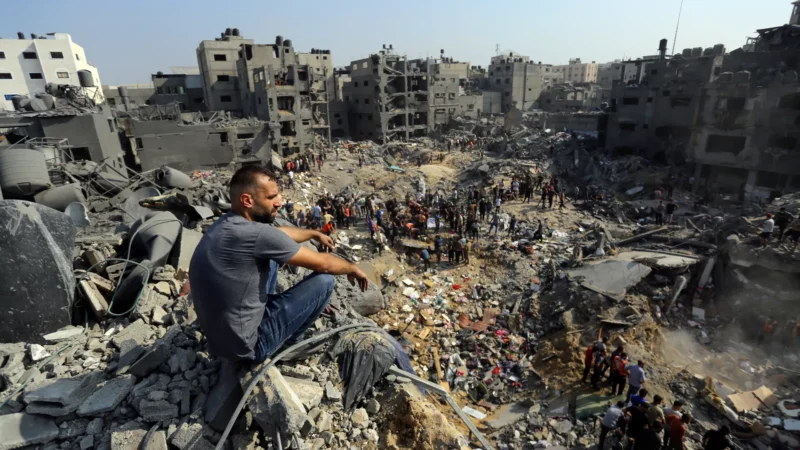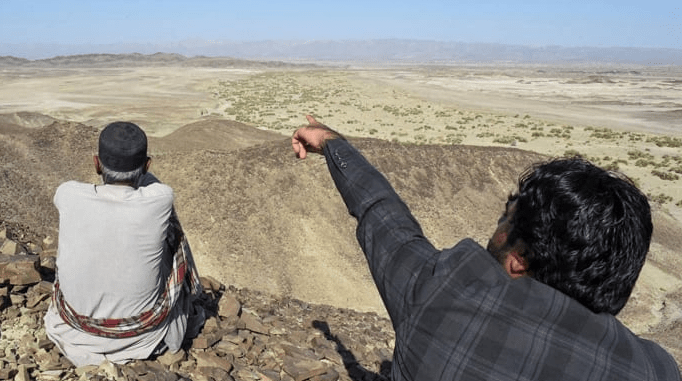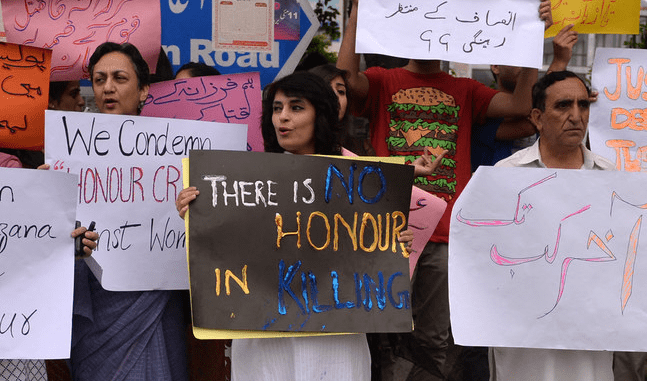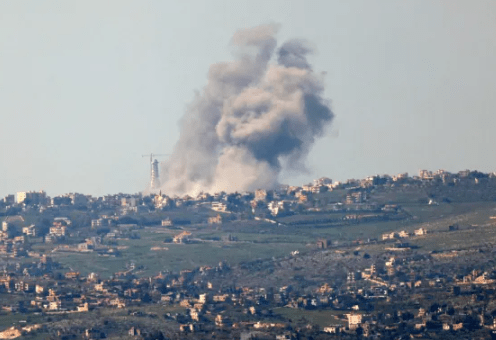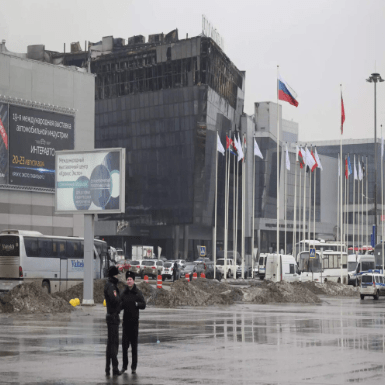US forces in Syria attacked after air raids on armed groups
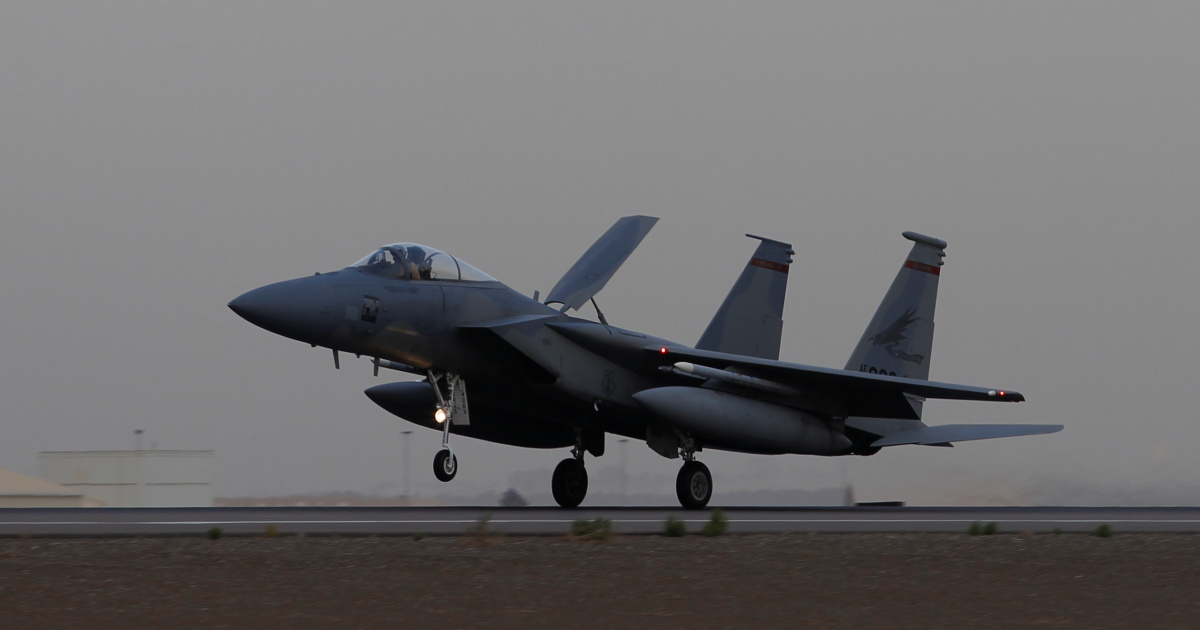
Iran-backed armed groups launch rockets at US troops in eastern Syria causing no casualties, says war monitor.
Iran-backed armed groups have exchanged fire with US-led coalition forces in eastern Syria, a war monitor said on Monday, after deadly US air strikes on the groups in Iraq and Syria the previous night.
Coalition spokesman Colonel Wayne Marotto said US troops were attacked by multiple rockets and suffered no casualties. He said US forces “conducted counter-battery artillery fire at rocket launching positions”.
The Syrian Observatory for Human Rights said Iran-backed armed groups fired several shells at a US base in eastern Syria’s Al-Omar oil field, causing damage but no casualties. Al Jazeera could not independently verify that information.
Syrian state news agency SANA said “missiles … targeted a military base of the US occupation forces in the Al-Omar oil field”, without citing who was responsible.
Iran-backed armed groups had earlier promised to retaliate after the US launched several air raids on the groups in Iraq and Syria on Sunday.
Syria decries ‘violation’
The US military said the air strikes on Sunday targeted operational and weapons storage facilities at two locations in Syria and one location in Iraq in response to drone attacks against US personnel and facilities in Iraq.
On Monday, the US defended the strikes on the armed groups, saying the attacks were designed to limit the risk of escalation.
Iraq’s government, wary of getting dragged into a US-Iran conflict, condemned the raids on its territory and said it would “study all legal options” to prevent such action being repeated.
Syria called the attacks a “flagrant violation of the sanctity of Syrian and Iraqi lands”, Syrian state media said, citing a foreign ministry statement.
Iraqi armed groups aligned with Iran named four members of the Kataib Sayyed al-Shuhada faction they said were killed in the attack on the Syria-Iraq border, and promised to retaliate.
Meanwhile, White House Press Secretary Jen Psaki said the White House notified appropriate members of Congress ahead of the strikes and remains in contact with regional allies.
US Secretary of State Antony Blinken said the strikes were supposed to send a “deterrent message”.
“We took necessary, appropriate, deliberate action that is designed to limit the risk of escalation, but also to send a clear and unambiguous deterrent message,” Blinken told reporters in Rome.
The attacks came at the direction of US President Joe Biden, the second time he has ordered retaliatory attacks against Iran-backed fighters since taking office five months ago. He ordered limited strikes in Syria in February, in response to rocket attacks in Iraq.
Al Jazeera’s Kimberly Halkett, reporting from Washington, DC, said that the Biden administration’s message overall is that this was “defensive in nature”.
“In other words, that these targets were carefully selected and were only selected because they’re used to store equipment that already in the past on multiple occasions has been used to attack US personnel and its interests,” Halkett said.
Iran-US tensions
Iraq’s military also issued a condemnation of the US attacks, calling them a “blatant and unacceptable violation of Iraqi sovereignty and national security”. It called for avoiding escalation, but also rejected that Iraq be an “arena for settling accounts” – a reference to the US and Iran.
It represented rare condemnation by the Iraqi military of US air raids. The Iraqi and US militaries coordinate closely in a separate battle in Iraq against remnants of the ISIL (ISIS) group.
Biden’s administration has been looking to potentially revive a 2015 nuclear deal with Iran. The attacks underscore how Biden aims to compartmentalise such raids, while simultaneously engaging Tehran in diplomacy.
Biden’s critics say Iran cannot be trusted and point to the drone attacks as further evidence that Iran and its proxies will never accept a US military presence in Iraq or Syria.
Meanwhile, Iran called on the US to avoid “creating crisis” in the region.
“Certainly what the United States is doing is disrupting security in the region, and one of the victims of this disruption will be the United States,” Iranian Foreign Ministry spokesman Saeed Khatibzadeh said on Monday.
Biden declined comment on the strikes in their immediate aftermath on Sunday. But on Monday, he met Israel’s outgoing president, Reuven Rivlin, at the White House for a broad discussion that will include Iran and US efforts to re-enter the Iran nuclear deal. Those efforts have raised serious concerns in Israel, Iran’s arch foe.
In Rome on Sunday, new Israeli Foreign Minister Yair Lapid told Blinken of Israel’s reservations about the Iran nuclear deal being put together in Vienna while pledging to fix “the mistakes made” in US-Israeli relations in recent years.

